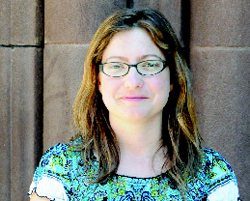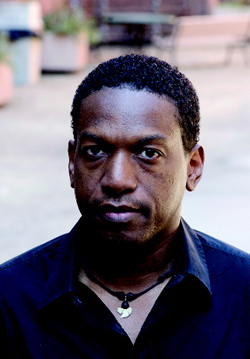New Faculty Profiles
TC's new faculty members Maria Paula Ghiso and Michael Wilson share their perspectives on their research and teaching
As part of a yearlong focus on new faculty members, Inside spotlights María Paula Ghiso and Michael Wilson.
María Paula Ghiso
Assistant Professor of Literacy Education
What do you teach?
I teach courses in literacy and children’s literature, with a focus on diversity and multilingualism.
What has been the focus of your research?
There are two related strands: the literacy practices of young children and language learning/biliteracy. My dissertation, titled Writing That Matters: Collaborative Inquiry and Authoring Practices in a First Grade Class, is an ethnographic study of a classroom writing community in an urban public school. I am also currently investigating multilingual children’s writing practices and responses to literature and teacher education in the area of multilingualism and English language learning.
What are your academic passions?
I am committed to providing engaging and intellectually rigorous educational opportunities for students and teachers. This focus developed early on, as part of my own immigrant trajectory to New York City and my bilingual/biliterate [literate in two languages] schooling history. Moving back and forth several times between Rosario, Argentina, and Queens, New York, I was able to discern firsthand the interplay of language, culture and identity within the various urban contexts of which I was a part.
Since then, I have striven to use my position as a teacher and teacher educator to advocate for the valuing of students’ transnational and multilingual knowledge, including knowledge of other languages, cultural practices, religions, world history and geography, and comparative understandings of issues such as political systems, labor and inequality.
Can you recall a memorable teaching experience, perhaps from your early career, that has had an impact on you?
In 2004 I began working in a professional development capacity with school districts attending to growing language learning student populations. In a number of cases, I encountered strong anti-immigrant sentiments, which I not only found personally hurtful, but which were divisive to our professional learning community and, most importantly, to the classroom experiences of youth.
In an effort to create an environment that valued students’ languages, identities and histories as resources, I decided to engage participants in literacy lessons conducted in Spanish, my native language, as a means of reflection on the role of language and culture in learning. My adult participants felt first hand the strains of learning in another language as well as the benefits provided by facilities in their native tongues, collaboration with peers, and curricular adaptations. Most importantly, as a learning community, we began to cultivate a more intellectual and nurturing dialogue about how to support immigrant students in schools.
Michael Wilson
Assistant Professor of Inclusive Education
What do you teach?
This year I will be teaching a course that examines how cultural contexts and concepts of student ability relate to exclusion in schools. I will also teach a course on quantitative research design in curriculum and teaching.
What has been the focus of your research?
My research focuses on the ways schools can achieve equity for students labeled with disabilities. Specifically, I focus on the effectiveness of schools in providing these students the capacity to choose to participate in the social, political and economic life of their community.
I am also interested in the relationship between school effectiveness or ineffectiveness and the high rate of involvement of students with disabilities in the juvenile and adult correctional systems.
What are your academic passions?
My academic passion is for using research to dismantle systemic notions of ability that allow societies to deny opportunities to individuals based on disability, race, gender, sexual orientation, and other such criteria. The outcome, hopefully, would be that a more diverse swath of peoples could choose to take advantage of the kinds of opportunities that individuals in institutions such as this one, including myself, take for granted daily.
Can you recall a memorable teaching experience, perhaps from your early career, that has had an impact on you?
My first teaching experience was teaching history and algebra in a class for students labeled with behavior disorders. Such labeling not only stigmatizes the students but also causes teachers to view students as the simple approximation of a negative stereotype. When I made a point of getting to know as much about my students as possible and forming personal relationships with them, I realized two important things. First, knowledge of teaching content, pedagogy and student file information is necessary–but wholly insufficient to reaching and educating many children. Second, once you get to know students’ lives, thoughts and perspectives, you quickly realize that there is usually little about their behavior that can be appropriately termed ‘disordered’.
Published Wednesday, Oct. 13, 2010

